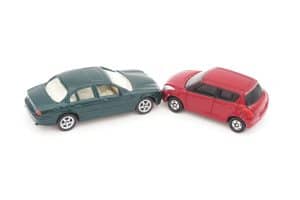
- The Savvy Promise
At Savvy, our mission is to empower you to make informed financial choices. While we maintain stringent editorial standards, this article may include mentions of products offered by our partners. Here’s how we generate income.
In this article
Whether to pay for a car with cash or finance is a quandary for many potential buyers. On one hand, paying in cash eliminates the need for monthly payments and interest charges, providing a sense of financial freedom. On the other hand, financing allows individuals to preserve their cash reserves and potentially invest the money elsewhere. In this blog, we'll explore the pros and cons of paying for your car with cash and how it compares to taking out a car loan to help you make the best decision for your needs.
What are the advantages of paying cash upfront?
There's a certain satisfaction that comes with owning a car outright. If you’ve got the money in the bank, here are some reasons to consider paying cash:
- Save on interest: financing a car means paying interest on the loan amount. By paying with cash, you eliminate these interest charges, potentially saving you thousands of dollars in the long run.
- No monthly repayments: no loan means no repayments. This frees up your cash flow for other expenses or allows you to build a larger emergency fund.
- Improved bargaining power: cash buyers often have an advantage when negotiating the purchase price. Dealerships might be more inclined to offer discounts knowing they'll receive immediate payment.
- Sense of ownership: owning your car outright provides a sense of security and flexibility. You are not obligated to a lender or restricted by loan terms, giving you the freedom to modify or sell the vehicle at any time.
What are the potential drawbacks of cash purchases?
While paying cash for a car offers undeniable benefits, there are also some drawbacks to consider:
- Large upfront cost:paying cash might not be feasible for everyone. Even if it is, a significant chunk of your savings could be depleted, potentially impacting your ability to manage unexpected expenses.
- Missed investment opportunities:the money used to buy a car outright could be invested elsewhere with the potential for higher returns, potentially exceeding the interest saved on a car loan.
- Limited options: paying with cash means you're limited to the amount you have on hand or are willing to spend. This may restrict your options in terms of the type of car you can afford, potentially forcing you to settle for a vehicle that doesn't fully meet your needs.
- No credit-building opportunity: financing a car and making timely payments can help build or improve your credit score. Paying with cash, while financially advantageous in the short term, does not provide this opportunity to demonstrate responsible credit management.
Beyond cash purchases: exploring your financing options
If paying cash upfront isn't possible, there are various car financing options available in Australia. Here are some common choices:
- Unsecured car loan: you borrow the money to purchase the car from your lender and repay it with interest over a set term (typically 3–7 years).
- Secured car loan: this is similar to an unsecured car loan, but your car serves as collateral. Missing payments could lead to repossession.
- Novated lease: salary packaging option where a portion of your pre-tax salary is used for loan repayments, potentially reducing your taxable income.
- Car dealer finance: dealerships sometimes offer their own financing options, potentially with competitive rates or special incentives.
What are the pros and cons of a car loan?
Benefits of opting for a car loan over cash include:
- Preservation of savings: car loans allow you to keep your cash reserves intact for other needs or investments.
- Opportunity for investment: Financing frees up capital for potential higher-return investments.
- Credit building: timely loan payments can improve your credit score.
- Greater choice of cars: with financing you may be able to buy more expensive vehicles or a car that better suits your needs and preferences.
- Fixed payments: a fixed repayment schedule can make it easier to budget.
However, it’s important to be aware of the following when taking out finance:
- Interest payments: interest accrues over time, increasing the total cost of the vehicle.
- Long-term obligation: a car loan typically extends for several years. This creates a long-term financial commitment that can limit your flexibility, especially for unexpected expenses or life changes.
- Debt burden: a car loan adds to your overall debt, potentially impacting your ability to secure other loans or lines of credit.
- Risk of repossession: missing loan repayments can lead to your car being repossessed by the lender.
- Depreciation: cars typically depreciate in value over time, and financing a vehicle means you'll be paying for its depreciated value with interest – and if you’re not careful you could end up owing more on the car than it’s actually worth.
It’s also important to keep the following in mind:
- Down payment: a larger down payment can significantly reduce your loan amount and monthly repayments.
- Loan term: a shorter loan term means higher monthly payments but less overall interest paid. A longer term has lower monthly payments but higher total interest costs.
Choosing the right option: cash or car loan?
The decision of whether to pay cash or finance a car depends on several factors:
- Your financial situation: do you have the savings to cover the full purchase price without impacting your financial security? Evaluate your current financial situation, including available cash reserves, income stability and existing debt obligations.
- Interest rates: interest rates on car loans can significantly impact the overall cost of financing. Compare interest rates offered on car loans with the potential returns on alternative investments. If you can secure a low-interest loan and invest your cash in assets with higher returns, financing may be more advantageous in the long run.
- Credit score: a good credit score can qualify you for better loan terms with lower interest rates. If you have very good credit you may qualify for favourable loan terms – but if you have poor credit you may face higher interest rates or difficulty obtaining financing.
- Car value and depreciation: evaluate the depreciation rate and expected resale value of the car you're considering purchasing to determine if paying with cash makes sense from an investment standpoint.
- Future goals: consider how purchasing a car will impact your ability to achieve future financial goals, such as saving for retirement, buying a home or funding education. Opting for a car loan may allow you to preserve cash for these objectives while still maintaining a vehicle.
Ultimately, the decision between cash and a car loan is a personal one. Consider your comfort level with debt, your aversion to interest payments and your overall financial philosophy when making your choice.
If you decide to go down the financing route, Savvy can help you find the car loan you need. We work with more than 40 lenders to provide you with a range of options tailored to your specific requirements and financial circumstances. Visit us today to get started with your car loan!
Did you find this page helpful?
Author
Adrian EdlingtonReviewer
Bill TsouvalasPublished on December 3rd, 2020
Last updated on March 20th, 2024
Fact checked
This guide provides general information and does not consider your individual needs, finances or objectives. We do not make any recommendation or suggestion about which product is best for you based on your specific situation and we do not compare all companies in the market, or all products offered by all companies. It’s always important to consider whether professional financial, legal or taxation advice is appropriate for you before choosing or purchasing a financial product.
The content on our website is produced by experts in the field of finance and reviewed as part of our editorial guidelines. We endeavour to keep all information across our site updated with accurate information.
Approval for car loans is always subject to our lender’s terms, conditions and qualification criteria. Lenders will undertake a credit check in line with responsible lending obligations to help determine whether you’re in a position to take on the loan you’re applying for.
The interest rate, comparison rate, fees and monthly repayments will depend on factors specific to your profile, such as your financial situation, as well others, such as the loan’s size and your chosen repayment term. Costs such as broker fees, redraw fees or early repayment fees, and cost savings such as fee waivers, aren’t included in the comparison rate but may influence the cost of the loan. Different terms, fees or other loan amounts may result in a different comparison rate.









